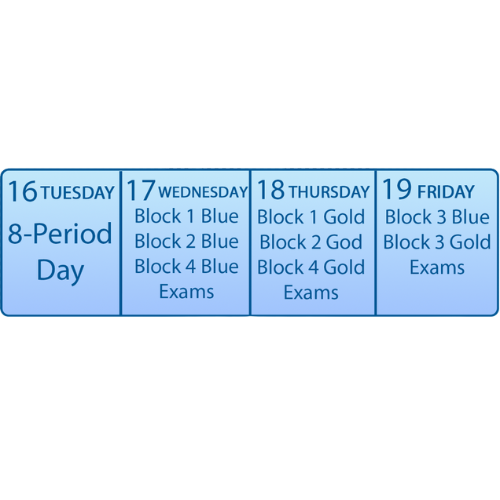The Illinois State Board of Education (ISBE) voted to switch from the SAT to the ACT as the primary college entrance exam for all high school juniors beginning in the spring of 2025, Testing Coordinator, Laura Ward said.
When the contract with ISBE and College Board concluded this past June, Illinois decided to switch over to the ACT, Principal Dr. Barbara Georges said. However, whether a student plans on taking the SAT or ACT, from a college standpoint both are equally valued tests, Ward explained. The district made this decision because it was more cost effective, Georges explained.
“The bid from the ACT Corporation [made the] cost to the state significantly less,” Georges said. “[The money left over] could be put back into other areas [to] support students,” Georges said.
Secondly, the ACT has a science section which fulfills the Illinois Science Assessment (ISA) testing requirements, Georges explained. Therefore juniors will no longer need to take it.
The ACT is composed of English, Reading, Math, and Science sections. Students are given hours and 55 minutes to complete the total of 215 questions. Additionally, while the ACT is known for its straightforward questions, it requires a quick pace, Ward said. The science section relies on critical thinking, interpretation, and problem solving skills, Ward said.
Junior Laila Grodecki is one of many happy with the new change because it allows her to take the test at South. Additionally, the way the test is formatted is more suited to her learning style, she explained.
“I like the [ACT] better because there’s more questions, [and they’re] less difficult,” Grodecki said.
This change is set for the next six years, so the ACT will be the Illinois required standardized test until 2030, Georges said. Then, this discussion will revisited, she added.
“Illinois used ACT for 15 years before the State Board switched to the SAT in 2016; since then, the state renewed College Board’s contract several times up until this year,” Georges said.
While the ACT has its positives, Georges understands that these sudden changes may bubble into feelings of stress or confusion for many students and parents.
“Whenever very large systems go through wide scale change, it can cause a lot of anxiety and bumps in the road,” Georges said. “I want students to know [we are] doing our best to predict and prepare for any obstacle that might fall in our path as [we are] implementing this change.”








